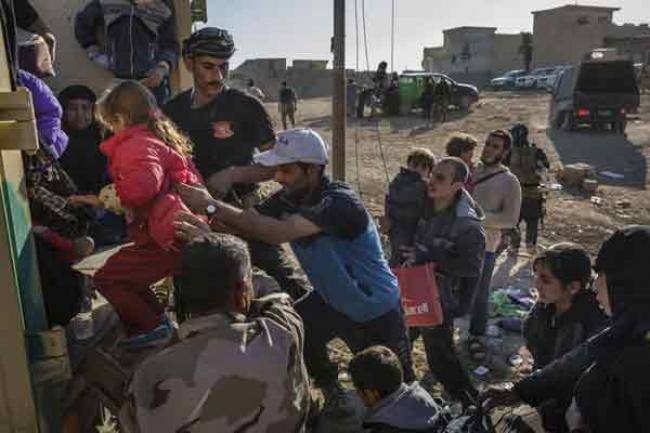Just Earth News 23 Dec 2016

UNHCR/Ivor Prickett
“People waiting for aid are already vulnerable and need help. They should be protected, not attacked,” said Lise Grande, the Humanitarian Coordinator for Iraq.
According to the Office for the Coordination of Humanitarian Affairs (OCHA), the killings and injuries occurred on two separate occasions as a result of indiscriminate mortar fire.
Grande emphasized that every party in the conflict has an obligation to protect civilians and uphold international humanitarian law. “The killing of civilians and aid workers violates every humanitarian principle,” she said.
“Our deepest condolences go to the families of the victims and our brave colleagues and we call on authorities to ensure the perpetrators are brought to justice and account,” she said.
The fighting between Iraqi forces and Islamic State of Iraq and the Levant (ISIL/Da'esh) in and around the city of Mosul has displaced more than 107,000 people. OCHA estimates that in a worst case scenario, as many as one million people may be forced to flee the city.
So far, the majority of families who have been displaced are staying in emergency sites and with host communities. Humanitarian agencies continue to provide life-saving assistance to those areas that remain accessible, including neighbourhoods in the eastern part of the city. To date, more than 356,000 people who have been affected by the military campaign have received aid.